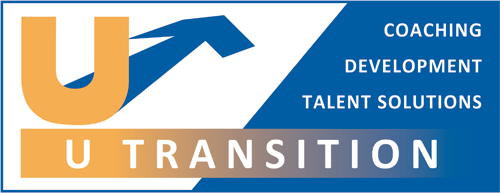
 Whether remote work is new to your business or you’ve been doing it successfully for years, your employees have likely experienced both the benefits and the challenges of getting things done away from the office.
Whether remote work is new to your business or you’ve been doing it successfully for years, your employees have likely experienced both the benefits and the challenges of getting things done away from the office.
With remote working having been forced upon most of us in recent times and the likelihood that it will be very much part of the way we work going forwards it makes sense to really understand what underpins and enables a successful remote workforce so we can support our teams to continued success in what is now the new normal.
It goes without saying that we need to provide the technology and relevant resources to enable our people to work remotely effectively such as good access to the internet, pcs or laptops, secure IT and data storage facilities and phones, sharing tools and communication facilities like zoom, Teams or Skype and so on.
However, once these hygiene factors have been taken care of, effective remote working comes down to how skills, mindsets and behaviours are applied by both the remote leader and the remote worker.
Businesses have been using competencies to help recruit, manage and develop their employees for a long time and competency frameworks have become an accepted part of HR practice.
.A 2015 study by Deloitte showed that 89% of ‘best-in-class’ organisations had core competencies defined for all roles, as opposed to 48% for all other companies.
Are competencies the same as skills?
In short no. Skills are the expertise or talent needed in order to do a job or task like being able to operate a computer, drive a car, plumb in a tap or perform brain surgery. Skills are usually a learnt activity through training or experience and give us the “what”.
Competencies take the skills, along with knowledge and abilities and incorporate them into on the job behaviours so adding the “how” these skills are applied and put into practice to demonstrate competent performance. If we take our brain surgeon, for example if he /she has the skills to perform brain surgery but has a poor patient bedside manner, is not sensitive or ethical in his /her approach, shouts at his / her team and is not a team player they won’t’ be viewed as competent overall.
What are the competencies that make for remote working success?
While many people enjoy working remotely and do so successfully, a multitude of challenges can make it quite difficult for others:
Different People = Different Challenges
| Requires self-discipline
Lack of social contact and potential feelings of isolation Difficulty prioritizing tasks Adapting to new technology and associated outages Lack of clarity in deliverables |
Possible lack of structure
Overwork/stress from not being able to switch off Managing different kinds of interruptions from family, children, pets Managing physical and mental health
|
Harrison Assessments has developed specific Remote Work Behavioural Competencies to help businesses maximise performance and meet the challenges of working in a remote environment.
Remote Work Competencies are designed to support employees to be productive and communicate effectively while working remotely.
Each of these two competencies compare an individual to a range of traits related to remote working.
There are two versions of the competencies: One for remote workers and the other for leaders who manage remote workers.
So Remote Workers – can compare their own behavioural tendencies to those that are most likely to produce positive outcomes and Leaders of Remote Workers – can gain insights into their own management style and potential adjustments that will benefit team members and organisational performance.
What are the remote working competencies?
Remote Productivity – Stays focused and productive while working remotely. Effectively works autonomously by taking initiative and persisting despite potential distractions. Keeps organized and focused on goals. Has a positive attitude and seeks self-improvement.
Remote Communication – Takes the initiative to communicate and collaborate to improve efficiency. Has a positive attitude and listens with an open mind. Doesn’t take things personally and is receptive to feedback. Seeks to ensure their communications are received by being straightforward while also being respectful. Communicates clearly and logically while also being sensitive to others
Important questions to ask when implementing a remote workforce:
- How can the capacity to work remotely be measured and understood?
- How can leaders adjust their management style to help employees succeed in a remote environment?
- How can data and talent analytics assist in making good decisions for your business?
Application:
The assessment is completed online using one 25minute Smartquestionnaire™ and results are available immediately.
The report lays out the behaviours and traits within each competency and highlights current performance against each. In this way we can effectively leverage strengths, target development gaps and understand potential stressors at individual, team and business levels. By doing so we can better equip ourselves and our teams to succeed through the identification of personal development plans and focussed coaching & training agendas.
For the fullest identification of Development & Training Needs the Remote Worker Analysis Reports target three distinct areas:
- The Remote Work Behavioural Competencies which identify traits needed for effective remote productivity and communication.
- The Behavioural Success Analysis Report identifies an individual’s fit with the job which is the primary foundation for successful remote working.
- The Engagement and Retention Report assesses the individual’s level of engagement which is also a foundation for successful remote working.
All three areas above are captured by the one Smartquestionnaire™, or alternatively, the Remote Work competencies can be used independently.
Measuring Remote Worker Competencies takes the guesswork out of how people are currently performing allowing you to fully support and develop people in the most appropriate way for them and the business to get business results.
And the beauty of Harrisons Assessments is that it is completely measurable, so in the future, once you have completed your training and development you can re take the questionnaire and see the improvement that has been made at individual, team and business level.
For more information contact me and see how Remote Working Competencies can help
Chrissie Coates
U Transition
Empowering businesses to bring out the best in everyone, because everyone matters.
Tel: 0203 3755 509
Mob: 07828 496 388
Email: christine@utransition.co.uk
www.utransitionconsulting.com
